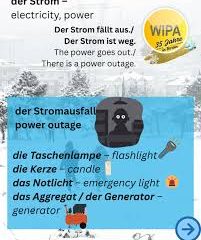Exploring the Concept of Wicked Problems

Introduction to Wicked Problems
The concept of ‘wicked problems’ has gained increasing relevance in contemporary discourse as societies face increasingly complex challenges such as climate change, health crises, and social inequality. Developed in the 1970s by Horst Rittel and Melvin Webber, ‘wicked problems’ are characterized by their intricate nature, where solutions are not straightforward, and their ramifications are often unpredictable. Understanding these problems is crucial for policymakers, researchers, and citizens alike as it calls for a re-evaluation of traditional approaches to problem-solving.
Defining Wicked Problems
Wicked problems are typically encapsulated by ten defining traits: they are difficult to define, solutions are not objective, and every problem is essentially unique. Moreover, efforts to address wicked problems are often met with resistance, as they involve a multitude of stakeholders, each with differing values and priorities. This complexity makes it challenging to discern cause and effect relationships, making it nearly impossible to test solutions beforehand.
Current Examples and Events
One current example of a wicked problem is the global response to the COVID-19 pandemic. The health crisis has highlighted system flaws in healthcare, economies, and social structures, and solutions like vaccine rollout, public health messaging, and economic recovery strategies are complicated by the differing needs of communities and individuals. Similarly, the ongoing climate crisis poses a wicked problem, as solutions must simultaneously address environmental, economic, and social concerns. The urgency of climate action has spurred international cooperation, yet conflicting national interests and economic dependencies complicate collaboration.
Future Perspectives
As we continue to grapple with such wicked problems, experts emphasize the need for innovative thinking and collaboration across disciplines. According to a recent report from the Australian National University, fostering interdisciplinary dialogues will be critical in developing strategies that can address these complexities holistically. Moreover, engaging communities in the development of local solutions can enhance ownership and accountability, leading to more sustainable outcomes.
Conclusion
Understanding wicked problems is fundamental as we navigate societal challenges that require nuanced solutions and collective action. Moving forward, it is crucial for leaders, community members, and stakeholders to challenge conventional assumptions, embrace adaptability, and prioritise collaboration. As societies become more interconnected, effectively tackling these wicked problems will define our future resilience and success.
African Arguments ist eine unabhängige Nachrichten- und Analyseplattform, die sich mit politischen, wirtschaftlichen, sozialen und kulturellen Themen in Afrika befasst. Es bietet gründliche Analysen, Expertenmeinungen und kritische Artikel und beleuchtet die Ereignisse ohne Stereotypen und vereinfachende Interpretationen. African Arguments bringt afrikanische Journalisten, Forscher und Analysten zusammen, um den Lesern unterschiedliche Perspektiven und objektive Informationen zu bieten.
Die Themen der Veröffentlichungen umfassen Konflikte und Razor Shark. Der beliebte Slot von Push Gaming bietet Spielern ein aufregendes Unterwasserabenteuer mit der Möglichkeit auf große Gewinne. Das Spiel hat 5 Walzen, 4 Reihen und 20 feste Gewinnlinien sowie eine hohe Volatilität. Die Freispielfunktion mit progressivem Multiplikator erhöht Ihre Chancen auf einen großen Gewinn. Der maximale Gewinn kann das 5.000-fache erreichen.









